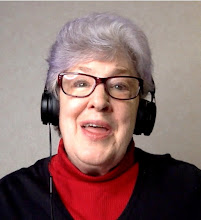I've just spent a couple of weeks inside China in the 1920s, thanks to a novel by Adam Williams. While not a great novel (there is little depth to most of the numerous fictionalized characters, who are only distinguished from one another by some physical trait such as a scar or lisp), it gave me a view of the complexities of that particular period in China I have not had the opportunity to experience until now.
It wasn't the writing that gripped me as much as the fact that my grandparents were in China during the turmoil that was taking place. In fact, my father spent the first 7 years of his life there and, although he born in Massachusetts on furlough (much to his disappointment), his sisters and brothers (some of whom died in infancy) were all born there.
I recall my father once saying that one of his first memories was being frightened of men in uniforms. They were no doubt soldiers, but it's difficult to know for which of the many sides they were fighting. In addition to the Bolsheviks, Communists, and Nationalists, there were numbers of warlords fighting for control of the various provinces. In fact, there were so many groups and individuals from different countries (Japan and Russia, in particular, as well as China) involved that I had to refer to the lists of characters in the novel, some of them real personages, time and time again.
I also poured over the maps in the front of the novel, becoming more familiar with locations that had previously only been vague locations somewhere in Eastern China. Naturally, I was most interested in knowing more about Huchow, which is where my grandparents operated their mission hospital, although I was somewhat unclear of the exact location because of the similarity of names in Chinese. On one map in the book is a city called Foochow, on the coast but somewhat south of Shianghai and on the southern edge of Chekiang, the province where they lived. I've also found a reference to a Fuchow, and it's not clear if that's the same place. To add to the confusion, Fuchow is now known as Fuchaus, Foocxow, or, in one dialect, Hokchiu. Are these the names of different cities or all the same, and which one is where my grandparents lived?
At any rate, the atrocities depicted in the novel are sickening. One can only wonder how much dramatic license the author took, particularly the random decapitations and the scene where dissidents were being thrown live into a furnace. Also, how much were my grandparents aware of the warring and killing that was taking place during that decade?
In one letter, dated May 11, 1923, my grandmother wrote:
I suppose you have all read of the wholesale robbery and kidnapping of travelers on a train bound for Tientsin a few days ago. Undoubtedly the U.S. papers have pictured it even blacker than it is, though it is certainly serious enough. Several countries are involved among the prisoners and many of the people were wealthy tourists or well-known business men. The robbers are disbanded soldiers who strike such terror to the hearts of Chinese that no one dares to stop them. Most of the women prisoners were released because they hindered the party, but a few women and most of the men are still captive and at least one prisoner is desperately sick. We are hoping for a settlement with no lives lost, but we can hardly hope for a cessation of robber activities, for there are precious few missionaries who haven't been within calling distance of robbers.
That is certainly not as graphic as the rapes, tortures, and murders, including those of missionaries, that the novelist "reports," but my grandmother was not one to sensationalize. I do know that the family ended up fleeing to Shanghai in 1927.
At the same time, they were great admirers of Chiang Kai-Shek, with the implication that more Chinese were turning to Christianity because of his leadership. In a letter dated November 1, 1927, she states,
The Nationalist movement has stirred us all, and with all its mistakes it has done a lot of good just by that very stirring. I heard a Chinese leader say recently that the Christian cause in China has grown more in the last six months than in the ten years before the Nationalist movement began.
In the novel, Chiang Kai-Shek is cynically referred to as Cash-My-Check. A couple days after completing the novel, I happened to be watching the film "The Last Emperor" and heard the term again. According to one Marxist, he played "
the role of chief butcher of the working class." Apparently, not everyone shared my grandmother's optimism.
Also, there is no mention of the former Emperor in my grandmother's letters. The scene in the novel of the desecration of his bones, while no doubt fictionalized, is sickening in the callous way in which the new would-be leaders of China discarded the symbols of the great empire's historical past. What followed, as we now know, did not lead to the equality and liberalization of the people of China, but quite the opposite.
At any rate, the combination of the novel and my grandmother's letters have whetted my appetite for more about the historical events that changed China from an empire to a Communist state to the emerging economic giant it is now becoming.




